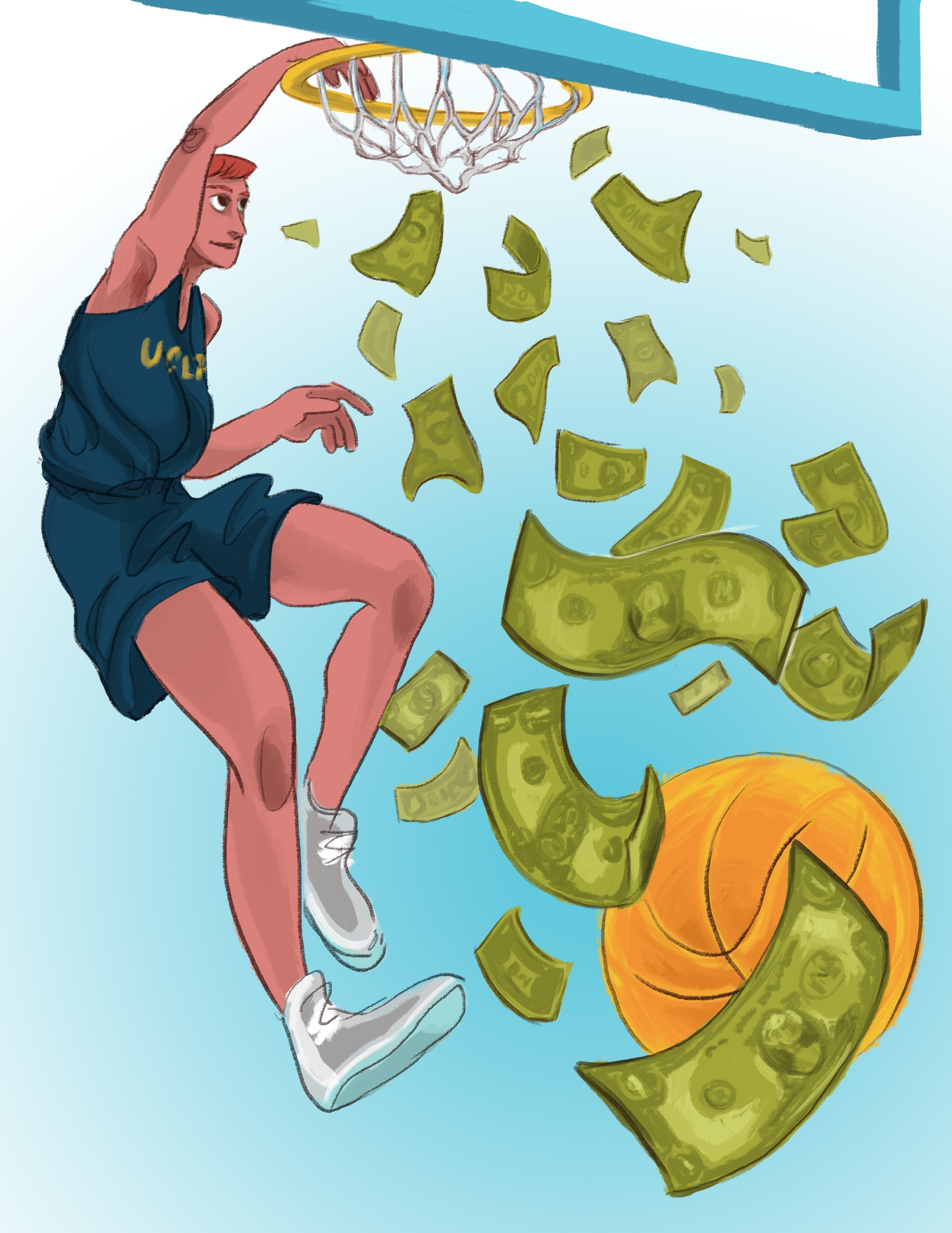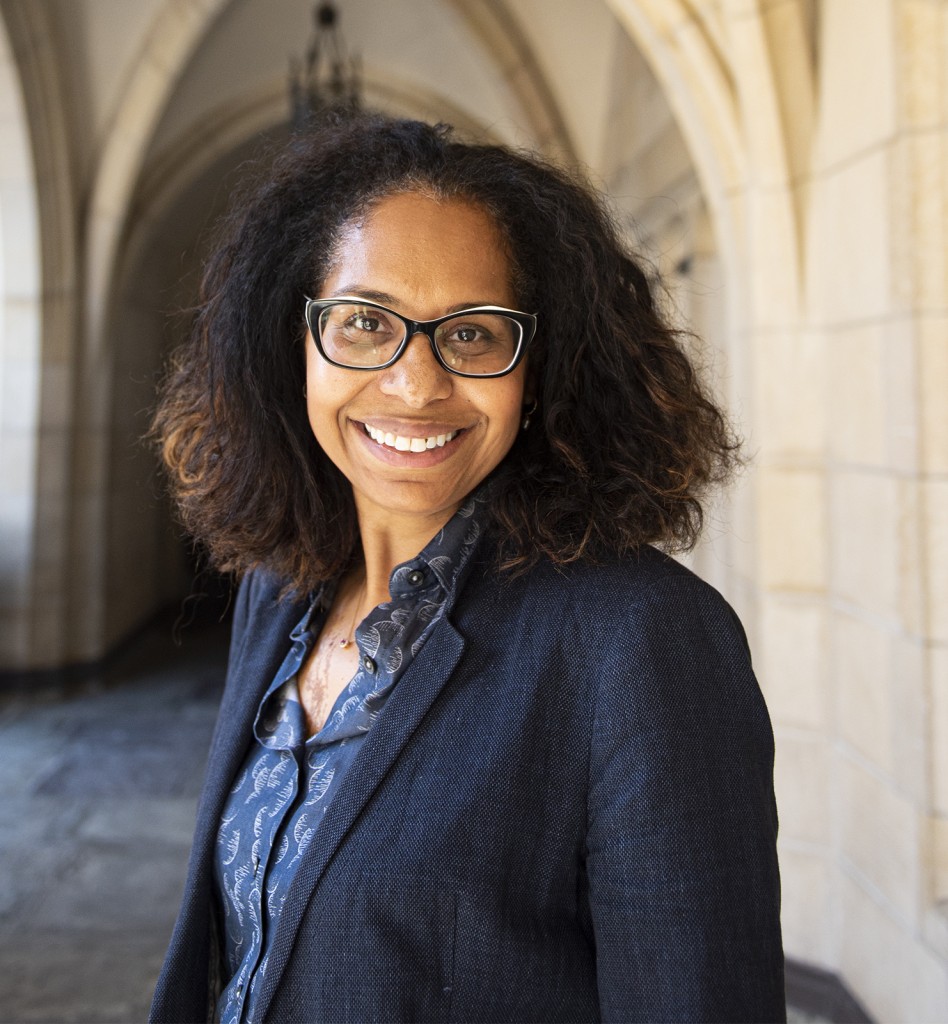NCAA likely to fight the Fair Pay to Play Act, California schools voice concerns

(Alice Lu/Daily Bruin)

By Jason Maikis
Oct. 2, 2019 1:11 a.m.
The NCAA has unilaterally ruled over college athletics for over a century.
“(It) kind of operates like the mafia,” said California assembly member Sydney Kamlager-Dove. “They make rules and regulations, they tell you to ‘honor them or else,’ and everyone else has kind of decided to obey.”
Not anymore.
Kamlager-Dove, a co-author of Senate Bill 206, which gives California college student-athletes the right to earn revenue from their names, images and likenesses, said the bill isn’t about the money – it’s about just treatment for underserved student-athletes.
“We talk about (fairness and equity) in so many other spaces, but we don’t talk about it when talking about student-athletes,” Kamlager-Dove said. “I took a tour with ASUCLA and they talked about the labor standards that UCLA upholds (for its student-workers). If we can fight for that, shouldn’t we be fighting for student-athletes who deserve the same?”
[Related: Fair Pay to Play Act passed despite continued NCAA opposition]
SB 206 became law after Gov. Gavin Newsom signed the Fair Pay to Play Act on an episode of UNINTERRUPTED’s “The Shop” in front of host LeBron James, bill lead-author Sen. Nancy Skinner, former UCLA gymnast Katelyn Ohashi, former UCLA basketball player Ed O’Bannon and others.
O’Bannon’s name is often brought up in the discussion about the finances of collegiate sports, seeing as he was one of the pioneers for college athletes’ economic freedom. O’Bannon v. NCAA was originally filed in 2009 when O’Bannon noticed a player featured in the NCAA ’09 basketball video game that very closely resembled him.
In 2016, the Supreme Court chose not to hear the case, leaving the fight over collegiate athletes’ names, images and likenesses unfinished. With SB 206 passed in California, some of O’Bannon’s original goals have finally been met.
But California’s fight for student-athlete labor rights isn’t over.
UCLA economics professor Lee Ohanian, who has taught a sports economics course at UCLA, said he expects the bill to get challenged in court by the NCAA and several California universities, but ultimately thinks it will end in favor of student-athletes’ economic rights.
“In the higher courts, the way it’s structured right now, my guess is (the bill) might be ruled unconstitutional,” Ohanian said. “The players are in the right here for a number of reasons, and if the NCAA really looked down the road, I think they would support this, and they would be trying to make flagship changes to their business model.”
Rather than publicly embrace and search for those alternative business models, however, the NCAA has pressured California’s government to stop the bill, and sent a letter to Newsom on Sept. 11 stating its complaints.
“If the bill becomes law and California’s 58 NCAA schools are compelled to allow an unrestricted name, image and likeness scheme, it would erase the critical distinction between college and professional athletics,” the NCAA said in the letter. “And, because it gives those schools an unfair recruiting advantage, (it) would result in them eventually being unable to compete in NCAA competitions.”
That threat from NCAA President Mark Emmert to bar all 58 colleges from sanctioned competition because of recruiting disparities is one reason the UC gave in its July statement of opposition to the bill.
But 247Sports recruiting expert Josh Gershon said there’s time for other state governments and the NCAA to act, as the recruiting landscape wouldn’t change overnight.
“I think there’s a lot that’s going to be sorted out over the next couple years,” Gershon said. “Whether or not other states pass a similar bill and based on how the NCAA reacts, I do think this will have some impact on recruiting, but I don’t think it’s gonna have a short-term impact on recruiting.”
While recruiting may not be impacted immediately, the NCAA has not yet backed down from its threat to bar California colleges from official NCAA competitions.
However, Kamlager-Dove – a co-author of the bill – said California and its lawmakers are willing to call the NCAA on its bluff.
“California is the fifth largest economy in the world,” Kamlager-Dove said. “It has amazing schools – both public and private – and we can leverage all of the schools, alumni and viewership to the NCAA and say, ‘We are willing to play by some of your rules, but not by these.’”
Even so, many California universities, the University of California included, have voiced concern that SB 206 will lead to issues with student scholarships and NCAA eligibility.
“We are troubled by the potential unintended consequences SB 206 may have on California schools, including any that may put our student-athletes, their teammates, and their athletic programs at risk of losing educational and competitive opportunities, such as scholarships and post-season play, because state law would be in conflict with current NCAA bylaws,” said UC Office of the President spokesperson Sarah McBride in an email statement.
[Related: California student-athletes closer to getting paid amid NCAA, UC opposition]
But multiple precautions have already been taken to prepare for a system in which athletes earn money for their work.
Kamlager-Dove – who represents the area of West Los Angeles that encompasses Westwood – said even the NCAA sees the writing on the wall and has been making arrangements behind the scenes to figure out how to make this transition.

“There was a study commissioned by the NCAA – probably because of this bill and they wanted to get ahead — that’s providing recommendations on how to move forward,” Kamlager-Dove said. “One of the reasons why the implementation deadline for the bill was delayed was to see what was going to come out of this study next month and figure out how there can be cohesion.”
The Fair Pay to Play Act will not go into effect until Jan. 1, 2023, as the California government wanted to give the NCAA time to commit to supporting the push for student-athletes’ economic rights, Kamlager-Dove said.
Despite the opposition by both the NCAA and individual universities, Ohanian said if all sides approached the implementation of the Fair Pay to Play Act cooperatively, students wouldn’t be the only ones to see more money in their bank accounts.
“This can be a cooperative enterprise,” Ohanian said. “Obviously the institutions right now are saying, ‘OK, we get 100% of the money you’re generating directly or indirectly.’ From that viewpoint they’re being efficient, but if they work with the student-athletes, there’s no reason they can’t grow the pie and find a piece big enough for everybody.”
Very few active college players and coaches have spoken publicly about the possibility of the senate bill passing, but UCLA football coach Chip Kelly did and admitted the NCAA and national laws are out of their hands so there’s no point in worrying about them.
But Kelly also said the NCAA model has to move on from its original format – like the Olympics did in the 1970s – and allowing college athletes more freedom is the right place to start.
“(The bill) doesn’t cost the universities, it doesn’t cost the NCAA, and I think it’s progress that it no longer puts restrictions (on athletes),” Kelly said. “You know, the Olympics used to just be for amateurs. The Olympic model changed over time, so I would imagine the NCAA model has to change over time.”
After more than 80 years allowing only amateur athletes to compete in the Olympics, Congress passed the Ted Stevens Olympic and Amateur Sports Act in 1978, giving all Olympic athletes the ability to profit from prize money and sponsorships for the first time.
And now the NCAA is facing a similar change at its doorstep, such as losing potential athletes to the Olympics. Gymnast Simone Biles gave up her scholarship to UCLA in favor of turning professional and competing in the 2016 Rio Olympics, where she won five gold medals.
Kelly’s Pac-12 coaching counterpart, Washington State’s Mike Leach, didn’t see the bill in the same light, saying California should work to keep its streets clean rather than legislate on college football.
But other prominent public figures have supported the bill, from the Lakers’ star LeBron James to Democratic presidential candidate Bernie Sanders and former UCLA quarterback Josh Rosen, who recently partnered with the College Athlete Advocacy Initiative in order to help give legal support to student-athletes and lobby for bills like SB 206.
Lawmakers across the aisle recognize the disturbing inequities in college sports. Proposed laws don’t require pay; they allow college athletes to earn money from their own name, image, or likeness, just like everyone else. Please share. @college4thletes https://t.co/XVYpmNJmHa
— Josh Rosen (@josh3rosen) September 3, 2019
Golden State Warriors forward Draymond Green even went so far as to call the NCAA a “dictatorship.” That description falls in line with those of Kamlager-Dove and Ohanian – who compared the NCAA to a cartel.
And no matter what they do to intimidate, Kamlager-Dove said the California government isn’t backing down from the “cartel” and will keep fighting for fairness.
“Those schools are rightfully concerned that (the NCAA’s) threats may be carried out upon,” Kamlager-Dove said. “But I don’t believe that we in the state legislature said, ‘We want this bill to pass,’ so we can step away and wash our hands of it and not support our schools and their student athletes.”



